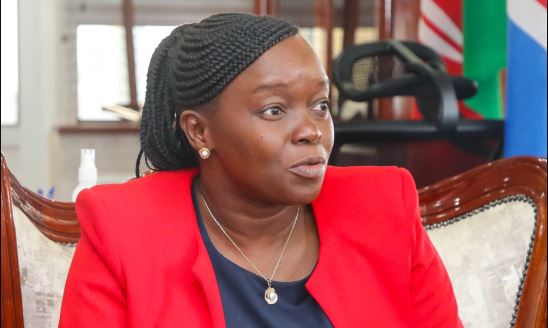No evictions from Ngong forest land until Cabinet decision, says CS Barasa

Residents living on the disputed 34-acre part of Ngong Forest will not be evicted, Environment Cabinet Secretary Deborah Barasa has confirmed.
Residents occupying a disputed 34-acre section of Ngong Forest in Lang’ata Constituency, Nairobi County, have been assured they will not be evicted as the government awaits a Cabinet decision on the matter, Environment Cabinet Secretary Deborah Barasa has confirmed.
CS Barasa made this assurance during a National Assembly Committee on Implementation session, where she updated lawmakers on the status of a House resolution regarding the disputed forest land.
More To Read
- MPs demand answers over controversial Ngong Forest luxury hotel Project
- CS Deborah Barasa pledges full disclosure on controversial Ngong Forest hotel project
- DRC opens 124 million hectares to oil exploration, risking endangered species and rainforests
- Environment Ministry withdraws 2025 regulations amid outcry over lack of consultation
- Alarm as invasive Mathenge plant overruns 1.1 million hectares, threatening livelihoods in 22 counties
- Kenya gets Sh16.4 billion loan to tackle rural poverty, climate woes
The session, chaired by Raphael Wanjala, reviewed the implementation of recommendations by the Departmental Committee on Environment and Natural Resources following a public petition over past demolitions and alleged land repossession attempts in the forest zone. A key directive from the House was for the ministry to halt threats against residents occupying the section, as its excision had followed legal procedures.
CS Barasa confirmed that since the House adopted the resolution, no officers from the ministry or the Kenya Forest Service (KFS) had issued eviction warnings or initiated any repossession activities.
"After the advice from Parliament, no threats from government or the Kenya Forest Service have been issued to the residents, and normalcy has been achieved," Barasa told the committee.
She noted that 148 petitions regarding the land had been reviewed, and all affected residents were engaged by forest management authorities to ensure harmony while protecting the forest.
“All public forests are managed by the government for the public good for present and future generations. It is the responsibility of the government to maintain and protect the integrity of public forests, including the creation of institutions,” Barasa stated.
The Forest Conservation and Management Act (FCMA) allows for the establishment of Community Forest Associations to ensure local communities participate in forest management.
Top Stories Today
Reader Comments
Trending











































